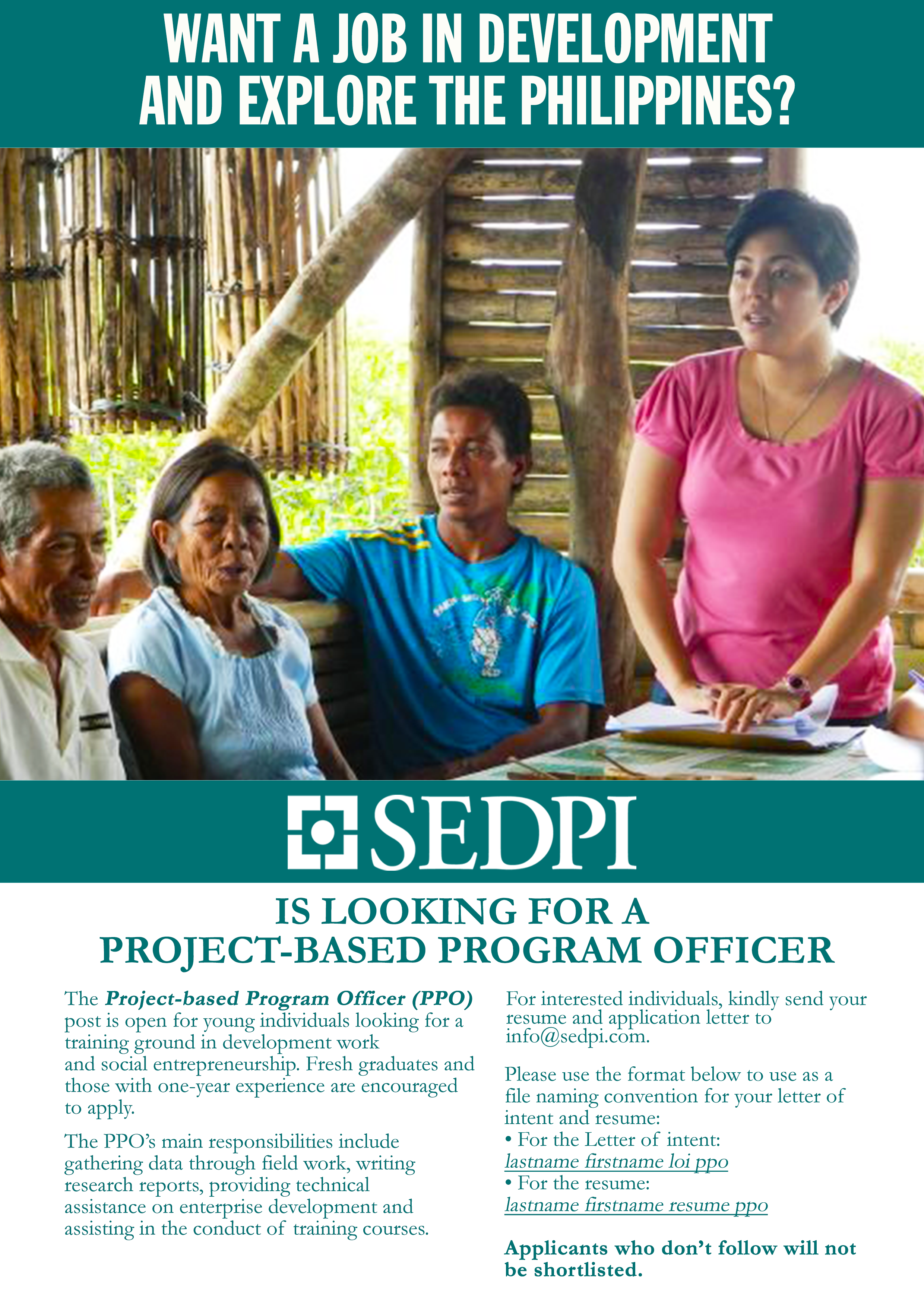Category: Microfinance
-
PALFSI’s Inspiring Road to Recovery
by Angelo Naidas People’s Alternative Livelihood Foundation of Sorsogon, Inc. (PALFSI) started its microfinance operation in 1997, servicing the rural areas of Sorsogon. By 2003, the organization experienced growth with outreach of 10,000 clients in 15 municipalities in the province of Sorsogon. In 2005, PALFSI partnered with Ayudahan Livelihood Foundation of Zamboanga (ALFZI). The two…
-
Public-Run Versus Customized Trainings in MFIs
By Carlo Niño Yacob Organizations regularly include capacity-building in their development plans. This have become an essential human resource strategy because it aims to improve, if not sustain, the level of knowledge and skill needed by its employees in the performance of their functions. In the case of microfinance institutions, capacity-building interventions are done mainly…
-
ARDCI Celebrates 17th Founding Anniversary
By: Bea Arnela Agricultural and Rural Development for Catanduanes, Inc. (ARDCI) recently celebrated its 17th founding anniversary last September 11, 2015. The festive day started with a Thanksgiving Mass and was followed by a colorful parade around the town of Virac. Hundreds of ARDCI members gathered in the Virac Sports Complex to join the fun-filled…
-
DAR Project Reaches 19,000 Poor Households
By: Hazel Atienza The Department of Agrarian Reform Micro Agri Loan Product (MALP) was an integrated credit delivery project for Agrarian Reform Beneficiaries (ARBs). The program aims to intensify and fast track the provision of microfinance services to target clients (ARBs/ARB households and rural women) to finance their agri-based enterprises through capable partner MFIs. Having…
-
Why Financial Literacy is Crucial to Microfinance Staff
by Denise Subido Microfinance Institutions (MFIs) face a myriad of issues in running their day-to-day operations. One problem they are constantly faced with is delinquency. Delinquency is a prevaling problem that has negative repercussions for an institution. One peculiar finding, however, is that when there is delinquency, there are also cases of fraud. In fact,…
-
Financial Literacy for CASS Beneficiaries
by Carlo Niño Yacob The Climate Adaptation Support Services (CASS) project intends to develop communities in Siargao Island, Surigao del Norte, toward climate-resiliency through economic empowerment. Climate Change Commission (CCC) in collaboration with Deutsche Gesellschaft für Internationale Zusammenarbeit (GIZ) implements CASS. With financial support in the form of cash transfers coming from the government, it…
-
Challenge of Integrating Crop Insurance in Agricultural Financing
By Romeo Arahan Jr. SEDPI recently concluded the MFI Credit Support to Agri-production and Enterprises of Agrarian Reform Beneficiaries or ARB Households and Rural Women in the Program Beneficiaries Development Model Areas project of the Department of Agrarian Reform (DAR) on July 2015. During the contract period, SEDPI was able to formulate micro-agricultural loan products…
-
Adopting Technology to Improve Microfinance Efficiency
By: Bea Arnela Parungo RAFI Microfinance (RMF) has constantly been revolutionizing their operations through breakthrough innovations. Last April, RMF upgraded its Management Information System (MIS) to improve efficiency in operations. On-field account management and record-keeping using the mobile application eliminates redundancies and reduces total work load. Instead of recording in collection sheets, the field staff…
